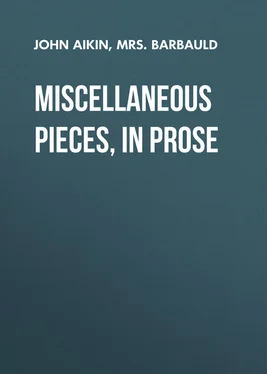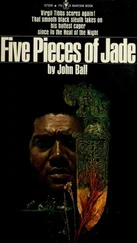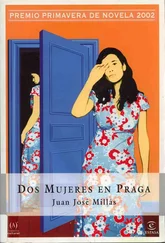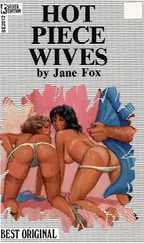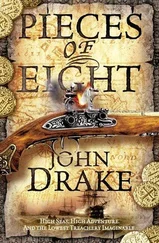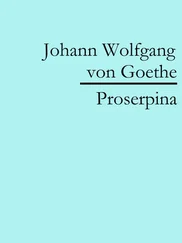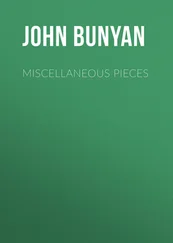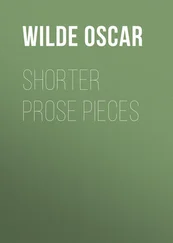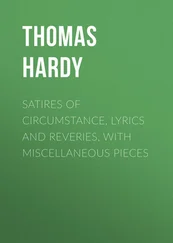John Aikin - Miscellaneous Pieces, in Prose
Здесь есть возможность читать онлайн «John Aikin - Miscellaneous Pieces, in Prose» — ознакомительный отрывок электронной книги совершенно бесплатно, а после прочтения отрывка купить полную версию. В некоторых случаях можно слушать аудио, скачать через торрент в формате fb2 и присутствует краткое содержание. Жанр: foreign_language, foreign_antique, foreign_prose, на английском языке. Описание произведения, (предисловие) а так же отзывы посетителей доступны на портале библиотеки ЛибКат.
- Название:Miscellaneous Pieces, in Prose
- Автор:
- Жанр:
- Год:неизвестен
- ISBN:нет данных
- Рейтинг книги:5 / 5. Голосов: 1
-
Избранное:Добавить в избранное
- Отзывы:
-
Ваша оценка:
- 100
- 1
- 2
- 3
- 4
- 5
Miscellaneous Pieces, in Prose: краткое содержание, описание и аннотация
Предлагаем к чтению аннотацию, описание, краткое содержание или предисловие (зависит от того, что написал сам автор книги «Miscellaneous Pieces, in Prose»). Если вы не нашли необходимую информацию о книге — напишите в комментариях, мы постараемся отыскать её.
Miscellaneous Pieces, in Prose — читать онлайн ознакомительный отрывок
Ниже представлен текст книги, разбитый по страницам. Система сохранения места последней прочитанной страницы, позволяет с удобством читать онлайн бесплатно книгу «Miscellaneous Pieces, in Prose», без необходимости каждый раз заново искать на чём Вы остановились. Поставьте закладку, и сможете в любой момент перейти на страницу, на которой закончили чтение.
Интервал:
Закладка:
John Aikin, Anna Lætitia
Miscellaneous Pieces, in Prose
ON THE PROVINCE OF COMEDY
Various are the methods which art and ingenuity have invented to exhibit a picture of human life and manners. These have differed from each other, both in the mode of representation, and in the particular view of the subject which has been taken. With respect to the first, it is universally allowed that the dramatic form is by far the most perfect. The circumstance of leaving every character to display itself in its own proper language, with all the variations of tone and gesture which distinguish it from others, and which mark every emotion of the mind; and the scenic delusions of dress, painting, and machinery, contribute to stamp such an appearance of reality upon dramatic representations as no other of the imitative arts can attain. Indeed, when in their perfection, they can scarcely be called imitations, but the very things themselves; and real nature would perhaps appear less perfect than her counterfeit.
The Drama has from early antiquity been distinguished into the two grand divisions of Tragedy and Comedy. It would seem that the general character of these was universally understood and agreed on, by the adoption of the terms tragic and comic , derived from them, into the language of every civilized people. The former of these is, we know, constantly applied to objects of terror and distress; the latter, to those of mirth and pleasantry. There is, however, a more comprehensive distinction of our feelings, which it is proper first to consider.
When we examine the emotions produced in our minds by the view of human actions, we shall observe a division into the serious , and the ludicrous . I do not think it necessary to define or analyse feelings with which all are well acquainted. It is enough to observe that serious emotions are produced by the display of all the great passions which agitate the soul, and by all those actions, which are under the jurisdiction of the grand rules of religion and morality; and that ludicrous emotions are excited by the improprieties and inconsistencies of conduct or judgment in smaller matters; such as the effects of false taste, or trifling passions. When we now apply the words tragic and comic , we shall at once perceive that the former can relate solely to such subjects as occasion serious , and the latter to such as occasion ludicrous emotions.
Now, although the practice of writers has frequently introduced ludicrous parts into the composition called a Tragedy, and serious parts into that called a Comedy, yet it has ever been understood that what constitutes the essential and invariable character of each is something which is expressed by the terms tragic and comic , and comes under the head of serious or ludicrous emotions. Referring therefore to a future consideration, the propriety of introducing serious parts in a Comedy, I shall now lay down the character of Comedy as a dramatic composition, exhibiting a ludicrous picture of human life and manners .
There are two sources of ludicrous emotions which it is proper here to distinguish. One of these arises from character , the other from incident . The first is attached and appropriated to the person, and makes a part, as it were, of his composition. The other is merely accidental, proceeding from awkward situations, odd and uncommon circumstances, and the like, which may happen indifferently to every person. If we compare these with regard to their dignity and utility, we shall find a further difference; since that proceeding from character belongs to a very respectable part of knowledge, that of human manners; and has for its end the correction of foibles: whereas that proceeding from incident is mean and trivial in its origin, and answers no other purpose than present mirth. ’Tis true, it is perfectly natural to be pleased with risible objects, even of the lowest kind, and a fastidious aversion to their exhibition may be accounted mere affected nicety; yet, since we rank Comedy among the higher and more refined species of composition, let us assign it the more honourable office of exhibiting and correcting the ludicrous part of characters ; and leave to Bartholomew Fair the ingenious contrivances of facetious drollery, and handicraft merriment.
The following sources may be pointed out from whence comic character is derived.
Nations, like individuals, have certain leading features which distinguish them from others. Of these there are always some of a ludicrous cast which afford matter of entertainment to their neighbours. Comedy has at all times made very free with national peculiarities; and, although the ridicule has often been conducted in a trivial and illiberal manner, by greatly overcharging the picture, and introducing idle and unjust accusations, yet I think we need not go so far as entirely to reject this sort of ludicrous painting; since it may be as important to warn against the imitation of foreign follies, as those of our own growth. Indeed, when a Frenchman or Irishman is brought upon our stage merely to talk broken English, or make bulls, there can be no plea either of wit or utility to excuse the illiberal jest: but, when the nicer distinctions of national character are exposed with a just and delicate ridicule, the spectacle may be both entertaining and instructive. Amidst the tribe of foreign valets to be met with on the English theatre, I would instance Canton in the Clandestine Marriage , as an admirable example of true national character, independent on language and grimace. The obsequiousness and attentive flattery of the servile Swiss-Frenchman are quite characteristic, as well as the careless insolence and affected airs of Brush the English footman 1 1 I am concerned to observe an instance of illiberal national ridicule without any merit of composition to palliate it, from a respectable dramatic writer, which is also rendered much more obnoxious by the circumstances. M. Voltaire’s Ecossaise was purposely written to exhibit a worthy English character; marked, indeed, with some whimsical peculiarities, but distinguished by a strong spirit of benevolence. It was impossible to expose national foibles more gently than by combining them with national virtues. When this Piece was brought on our stage under the title of the English Merchant , a French valet was inserted among the personæ dramatis , characterised by nothing but his false English, and for no other end but to be exhibited as a scoundrel!
. O’Flaherty, the Irish soldier of fortune in the West Indian , is an example of similar merit; much more so, I think, than the character from which the piece has its title.
Although some part of the character of a nation is pretty uniform and constant, yet its manners and customs in many points are extremely variable. These variations are the peculiar modes and fashions of the age; and hence the age, as well as the nation, acquires a distinguishing character. Fashion, in general, usurps a dominion only over the smaller and less important part of manners; such as dress, public diversions, and other matters of taste. The improprieties of fashion are therefore of the absurd and ludicrous kind, and consequently fit subjects of comic ridicule. There is no source of Comedy more fertile and pleasing than this; and none in which the end of reformation is likely to be so well answered. An extravagant fashion is exhibited upon the stage with such advantage of ridicule, that it can scarcely stand long against it; and I make no doubt that Moliere’s Marquis de Mascarille , and Cibber’s Lord Foppington , had a considerable share in reforming the prevailing foppery of the times. Fashion has also too much interfered in some more serious matters, as the sentiments and studies of the age. Here too Comedy has made its attacks; and the Alchemist , the Virtuoso , the Antiquary , the Belle Esprit , have in their turns undergone the ridicule of the stage, when their respective pursuits, by being fashionable, were carried to a fanciful extravagance. It is well known that Moliere, in his comedies of the Femmes Sçavantes , and the Precieuses Ridicules , was as successful against the pedantry and pretensions to wit which infected the French nation, and particularly the ladies, at that period, as Cervantes in his attack upon knight-errantry.
Читать дальшеИнтервал:
Закладка:
Похожие книги на «Miscellaneous Pieces, in Prose»
Представляем Вашему вниманию похожие книги на «Miscellaneous Pieces, in Prose» списком для выбора. Мы отобрали схожую по названию и смыслу литературу в надежде предоставить читателям больше вариантов отыскать новые, интересные, ещё непрочитанные произведения.
Обсуждение, отзывы о книге «Miscellaneous Pieces, in Prose» и просто собственные мнения читателей. Оставьте ваши комментарии, напишите, что Вы думаете о произведении, его смысле или главных героях. Укажите что конкретно понравилось, а что нет, и почему Вы так считаете.
